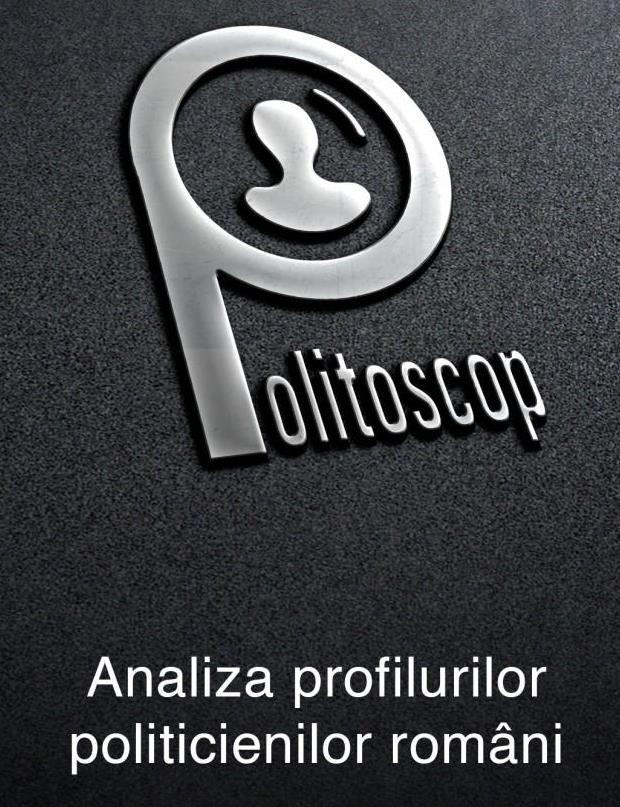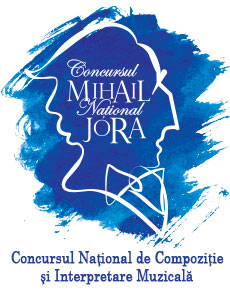Under the Auspices of the Royal Family of Romania
THE ROYAL COLLOQUIA
Utopia and Revolution
Sinaia, Romania, June 22-25, 2017
Conveners: Sorin Antohi and Gregory Claeys
Organizer: Asociația Orbis Tertius / A Treia Lume
Partners: Aaylex, export club, Forum Auto, Fundația Spandugino, Niciman, Direcția Județeană de Cultură Iași, Muzeul Municipiului București, Alexandrion, Hotel Bastion, Eurolines, ALIRA, Alcovin Măcin, Clos des Colombes, Trivium. Revistă de gîndire simbolică, Observator cultural
In 2016, scholars around the world have celebrated five centuries since the publication of Thomas More’s Utopia, the epitome of a timeless (and, self-ironically, spaceless) exercice sur les possibles latéraux (to use Raymond Ruyer’s felicitous phrase). A form of speculative fiction, a social theory, a metahistorical trope, a countercultural discourse, a blueprint, an ideology (pace Karl Mannheim), a practice (and so on) that can be traced back at least to Plato, Utopia as we knew it seems to have run its course, and may be in need of fresh impulses. In 2017, we remember 1917, one of the most complex and momentous of all revolutions, both the consequence and starting point of yet another global quest for utopia which was to end for most in 1989/1991 at the latest, after a tragic encounter with dystopia.
To discuss all of the above and more—such as the kindred streams of history, religion, millennialism, reform, fiction, fantasy, science fiction, etc.–, an interdisciplinary colloquium is convened in Sinaia, under the auspices of the Royal Family of Romania. A related international conference, Humanism and Utopianism. Historical and Critical Perspectives, was held at the same location on June 13-15, 2014.
The Cantemir Annual Award continues the Cantemir Prize, established in 2010 as part of the activities leading to and becoming the Cantemir Institute at the University of Oxford (2011-2013). The Cantemir Prize was handed during annual conferences at the University of Oxford by HRH Prince Radu of Romania, the High Patron of the Cantemir Institute, to Ștefan Lemny (2010), Alison Ashford and Philippa Levine (2011), Martin Dodge, Chris Perkins, and Rob Kitchin (2012).
The Cantemir Annual Award celebrates the legacy of two enlightened princes of Romanian background: Demetrius Cantemir (1673-1723) and his son Antiochus (1709-1744). Their writings, actions, and visions encompass vast spaces, different periods, and various cultures, both Eastern and Western. Demetrius was a ruling prince of Moldavia educated in Constantinople, a member of the Berlin Academy, a prince of the Russian Empire and an adviser to Peter the Great, while Antiochus was a translator, Russia’s first modern poet and first ambassador to Great Britain and France. They were cosmopolitan humanists who, while rooted in particular societies, traditions, and worldviews, transcended borders of many sorts, aspiring to intercultural knowledge and universal horizons.
Thursday, June 22
Arrivals
Transfers to Sinaia
20:30 Dinner
Friday, June 23
8:00-12:00 Trip to Bran Castle
12:45 Awarding of the Cantemir Annual Award, Peleș Castle (Florentine Hall)
13:00 Lunch hosted by HRH Prince Radu of Romania at Peleș Castle (State Dining Hall). Followed by a tour of Peleș and Pelișor Castles.
16:15-18:30 Ideology, (Secular) Religion, and Fiction
Moderator: Sorin Antohi
Gregory Claeys, Utopia and Revolution: The Case of Karl Marx
Moshe Idel, Messianism: Between Evolution and Revolution
Artur Blaim, Utopian Fictions: Before and After Revolutions
18:30-18:45 Break
18:45-19:30 Revolution, Utopia, and the Novel
Stelian Tănase, Old Nick: A Fairy Tale of the Twentieth Century. A novel translated into English by Jean Harris. Introduction by Sorin Antohi, reading by the translator, comments by the author, discussion.
19:30 Dinner
Saturday, June 24
9:00-11:00 Utopias (from the Land) of the Undead
Moderator: Artur Blaim
Ștefan Borbély, Utopian Thinking in Transylvania: German and Hungarian Case Studies
Mariano Martín Rodríguez, What If They Returned? Collective Human Resurrection as an Ambiguously Utopian Revolution in Modern Secular Speculative Fiction
11:00-11:30 Coffee Break
11:30-13:30 The 1989 Revolutions and Their Aftermath
Moderator: Stelian Tănase
Tilo Schabert, The German Revolution of 1989-1990: A European Experience
Michael Shafir, Return to Anti-Utopia in Post-communist East Central Europe
13:30-15:00 Lunch
15:00-16:30 Visit of Sinaia Monastery
16:30-18:00 Utopia, Revolution, and History
Moderator: Michael Shafir
Eduardo Nolla, Utopia Realized: Political Theory and Democracy
Sorin Antohi, Utopia and Revolution: (Failed) Escapes from History
18:15-19:00 Concluding Remarks
Moderator: Gregory Claeys
19:00 Dinner
Sunday, June 25
Departures
Participants
- Sorin Antohi (Bucharest) n.antohi@gmail.com
- Artur Blaim (Gdańsk) ablaim@hektor.umcs.lublin.pl
- Ștefan Borbély (Cluj-Napoca) stefanborbely@yahoo.com
- Gregory Claeys (London) claeys@rhul.ac.uk
- Jean Harris (Drăghici, Argeș) ambuterharris@hotmail.com
- Moshe Idel (Jerusalem) idel@gmail.com
- Mariano Martín Rodríguez (Brussels) martioa@hotmail.com
- Eduardo Nolla (Madrid) enolla@mac.com
- Tilo Schabert (Munich) tilo@schabert.org
- Michael Shafir (Cluj-Napoca) shafirmchl@yahoo.com
- Stelian Tănase (Bucharest) steliantanase50@gmail.com
BIOS
Sorin Antohi
A freelance historian of ideas, essayist, translator, and consultant based in Bucharest. He has studied English, French (University of Iași, Romania), and History (EHESS, Paris). He has taught mainly at the University of Michigan (Ann Arbor), the University of Bucharest, and the Central European University in Budapest (where he served as Academic Pro-Rector and founded Pasts, Inc. Center for Historical Studies, under the honorary presidency of Paul Ricoeur). He has conducted research at institutes of advanced study and other institutions in Paris, Bielefeld, Stanford, Vienna, Essen, Berlin, Leipzig, etc. He has published widely on intellectual history, history of ideas (Utopianism, anti-modernism, ethnic ontologies, etc.), historical and social theory, and history of historiography, as well as on Romania in European contexts. He has lectured, attended and (co)organized conferences in thirty countries. He has served on various academic, editorial, and civic governing or advisory bodies, e.g., member of the Board, International Committee of Historical Studies, and secretary general of the International Commission for the Theory and History of Historiography. With Chun-chieh Huang and Jörn Rüsen, he co-edits the book series, ‘Reflections on (In)Humanity’ (Vandenhoeck & Ruprecht and National Taiwan University Press).
Artur Blaim
Professor of English Literature at the University of Gdańsk. He is the author of Early English Utopian Fiction (1984), Aesthetic Objects and Blueprints. English Utopias of the Enlightenment (1997), Gazing in Useless Wonder. English Utopian Fiction 1516-1800 (2013), Robinson Crusoe and His Doubles (2016), Utopian Visions and Revisions, or the Uses of Ideal Worlds (2017). He has co-edited several volumes in literary and utopian studies and published numerous articles on cultural semiotics, literary and filmic utopias, and William Shakespeare.
Ștefan Borbély
Professor in the Department of World and Comparative Literature of The Faculty of Letters in Cluj, Romania (Babeș-Bolyai University). He holds a Ph.D. in comparative literature (1999). Starting as an editorial member of the student literary journal Echinox, edited in Cluj, he made his debut in 1995, by publishing the volume of essays Grădina magistrului Thomas (Master Thomas’s Garden). His further books are: Xenograme (Xenograms, 1997), Visul lupului de stepă (The Steppenwolf’s Dream, 1999), De la Herakles la Eulenspiegel. Eroicul (From Herakles to Eulenspiegel. The Hero, 2001; 2nd ed. in 2013), Opoziţii constructive (Constructive oppositions, 2002), Matei Călinescu. Monografie (Matei Calinescu. A monography, 2003), Cercul de graţie (The Circle of Grace, 2003), Proza fantastică a lui Mircea Eliade. Complexul gnostic (Mircea Eliade’s Fantastic Fiction. The Gnostic Complex, 2003), Mitologie generală I (General Mythology, I, 2004), Despre Thomas Mann si alte eseuri (On Thomas Mann and other Essays, 2005), O carte pe săptămână (A Book per Week, 2007), Pornind de la Nietzsche (Starting from Nietzsche, 2010), Existenţa diafană (The Serene Existence, 2011), Homo brucans şi alte eseuri (Homo brucans and Other Essays, 2012), Civilizaţii de sticlă. Utopie, distopie, urbanism (Glass Civilizations. Utopia, Dystopia, Urban Planning, 2013), Eseuri biblice (Biblical Essays, 2015), Simetrii şi discrepanţe (Symmetries and Discrepancies, 2017. He coordinated Experienţa externă (Experience Abroad, 1999), as well as Ion Pop – şapte decenii de melancolie şi literatură (Ion Pop – 7 Decades of Melancholy and Literature, 2011) and translated G.M. Tamás’s essays into Romanian (Idola tribus, 2001). He is a member of the Romanian Writers’ Union and contributing editor for The Journal for Psychohistory. He has contributed to many literary dictionaries and encyclopedias such as: Dicţionarul Scriitorilor Români (The Romanian Writers’ Dictionary, DSR, vol. 1-4), Dicţionarul Esenţial al Scriitorilor Români (the abbreviated version of the previous work, DESR), Dicţionar Analitic de Opere Literare Româneşti (The Analytical Dictionary of the Romanian Literary Works, vol. 1-4), The Facts on File Companion to the World Novel (2008). Scholarships: four New Europe College (Bucharest) scholarships during 1996 and 2004; East European Scholar, St. John’s College, Oxford, UK, June (1999); Fulbright Visiting Scholar, Indiana University, Bloomington, US (March-Nov. 1992); visiting fellow in New York: at Columbia University and at The Institute for Psychohistory respectively (1997, 1999, 2000); visiting fellow, University of North Carolina, Chapel Hill (2001), Jawaharlal Nehru University, India (Institute of Advanced Study, 2009), and Universidad de Granada, Spain (2012). He has got several literay prizes from the Cluj chapter of the Romanian Writers’ Union and the Lucian Blaga Prize of The Romanian Academy in 2012. He publishes frequently in Convorbiri literare.
Gregory Claeys
Born in France and educated in Canada and the United Kingdom. He has taught in Germany and the U.S. and since 1992 has been Professor of the History of Political Thought at Royal Holloway, University of London. He is the author of Machinery, Money and the Millennium: From Moral Economy to Socialism (Princeton University Press, 1987), Citizens and Saints: Politics and Anti-Politics in Early British Socialism (Cambridge University Press, 1989), Thomas Paine: Social and Political Thought (Unwin Hyman, 1989); The French Revolution Debate in Britain (Palgrave Macmillan, 2007), Imperial Sceptics: British Critics of Empire, 1850–1920 (Cambridge University Press, 2010), Searching for Utopia: the History of an Idea (Thames & Hudson, 2011; German, Spanish, Portuguese, Japanese editions), and Mill and Paternalism (Cambridge University Press, 2013). He has edited The Cambridge Companion to Utopian Literature (Cambridge University Press, 2010) and (with Gareth Stedman Jones) The Cambridge History of Nineteenth Century Political Thought (Cambridge University Press, 2011), as well as some fifty volumes of primary sources and edited essays. His latest book, Dystopia: A Natural History (Oxford University Press) was published in 2016. The next, A Pelican Introduction to Marx and Marxism, will be published in 2018. He is editor of the series, „Palgrave Studies in Utopianism” (Palgrave Macmillan) and is coordinator of the Utopolis project of European utopian bibliography, translation and republication.
Jean Harris
A novelist and translator who lives in Romania. She holds a Ph.D. in British and American literature from Rutgers University (1983) and has published fiction and literary criticism. She is the 2007-2008 winner of the University of California, Irvine’s International Center for Writing and Translation’s annual translation grant for her translation of Ştefan Bănulescu’s “Mistreţii erau blânzi.” Between 2008 and 2009 she directed the critically acclaimed The Observer Translation Project (http://translations.obervatorcultural.ro) which translated Romanian fiction into 7 + languages monthly. Most recently she has published “Like Trash on the Hall Floor,” an essay on the Romanian realities behind Cristian Mungiu’s Beyond the Hills in the Los Angeles Review of Books as part of a symposium on that film http://lareviewofbooks.org/essay/the-romanian-new-wave-crests-christian-mungius-4-months-3-weeks-and-2-days (2013) as well as an interview with Andrei Codrescu (on the subject of his book, Bibliodeath in the Los Angeles Review of Books http://lareviewofbooks.org/essay/andrei-codrescu (2014). Her translation of Norman Manea’s Captives (New Directions) appeared in 2014. In 2015 she translated Igor Bergler’s novel, The Lost Bible (Editura Rao). In 2016 she translated The Confession, a play by Tatiana Niculescu Bran to be used as libretto for an opera by Jeremy Gill. In 2017 she has been translating Stelian Tănase’s W, a novel. Chapter One of Stelian Tănase’s Old Nick and the Mummy will appear in Delos, Winter 2017/2018. Norman Manea’s “Exile and Creativity” will appear in Salmagundi, Winter 2017/2018. And finally, in 2018 “The Solution Probably Lies,” will appear in the Journal of World Literature 3:1 “[Brill: ed. David Damrosch and Theo D’haen] “Romanian Literature for the World: Circulation and Exchange on the International Market”, Jean Harris interviewed by Delia Ungureanu.
Moshe Idel
Emeritus Max Cooper Professor in Jewish Thought at the Hebrew University, Jerusalem, and Matanel Chair at the academic College, Safed. Born in Târgu Neamț, Romania, he emigrated to Israel at 16, where he studied at the University of Haifa (English and Hebrew) and the Hebrew University (Ph.D. in Kabbalah under Shlomo Pines). He also studied and worked with Gershom Scholem. He is an acclaimed leading figure in Jewish studies, has received many prizes and awards, including the Israel Prize and many honorary doctorates. He has conducted research, taught and lectured worldwide. Since 2015, he is the President of the Union of Jewish Studies. From among his numerous publications in many languages, only a select list of English-language books is included here: Kabbalah: New Perspectives (1988); The Mystical Experience in Abraham Abulafia (tr. from the Hebrew by Jonathan Chipman, 1988); Studies in Ecstatic Kabbalah (1988); Language, Torah and Hermeneutics in Abraham Abulafia (tr. Menahem Kallus, 1989); Golem: Jewish magical and mystical traditions on the artificial anthropoid (1990); Hasidism: Between Ecstasy and Magic (1994); Mystical Union and Monotheistic Faith, An Ecumenical Dialogue, eds. M. Idel, B. McGinn (1996); Messianic Mystics (1998); Jewish Mystical Leaders and Leadership, eds. M. Idel, M. Ostow (1998); Abraham Abulafia, An Ecstatic Kabbalist, Two Studies (ed. Moshe Lazar, 2002); Absorbing Perfections, Kabbalah and Interpretation (2002); Ascensions on High in Jewish Mysticism: Pillars, Lines, Ladders (2005); Enchanted Chains: Techniques and Rituals in Jewish Mysticism (2005); Kabbalah and Eros (2005); Ben: Sonship and Jewish Mysticism (2007); Old Worlds, New Mirrors, On Jewish Mysticism and Twentieth-Century Thought (2009); Kabbalah in Italy 1280-1510 (2011); Saturn’s Jews, On the Withches’ Sabbat and Sabbateanism (2011); Mircea Eliade: From Myth to Magic (2014).
Mariano Martín Rodríguez
A translator at the European Commission in Brussels (Belgium). He obtained his Ph. D. in Philology at the University Complutense (Madrid) in 1994. Since then, he has published more than 60 studies in different languages related to modern drama, scientific romance, science fiction and speculative fiction, in Spain and in Europe, as well as several critical editions of translations from different Romance languages and English into Spanish, and several critical editions of Spanish fantastic, speculative and utopian novels and stories (Luis Araquistáin’s El archipiélago maravilloso, Alberto Insúa’s El barco embrujado, etc.). He is currently co-director of the online journal Hélice (www.revistahelice.com) and a member of the research group on utopias and future history HISTOPIA (Universidad Autónoma de Madrid).
Eduardo Nolla
Eduardo Nolla is the Academic Director of Fundación Ortega y Gasset-Gregorio Marañón. He is also the Director of Instituto Universitario de Investigación Ortega y Gasset, a graduate school associated to Universidad Complutense de Madrid and offering master degrees and Ph. D.s in social sciences, humanities and international relations.
He was the rector of Universidad Camilo José Cela from 2013 to 2015. From 1994 to 2013 he was Professor of Political Theory at Universidad San Pablo-CEU, where also held the following positions: Vice-rector of Coordination, Vice-rector of Organization, Vice-rector of Administration and Vice-rector of Graduate Studies. From 1992 to 1994, he was one of the founders and directors of Universidad Antonio de Nebrija, professor of political theory and chairman of the history department. From 1981 to 1985, he was a Postdoctoral Fulbright Scholar at Yale University, and from 1985 to 1992 he lectured in Political Theory at the same university.
Eduardo Nolla’s fields of research are democratic thought and political theory. He is a well-known world expert on Alexis de Tocqueville having prepared the first critical edition of Democracy in America including previously unpublished manuscripts. Professor Nolla has received several Spanish and foreign honors. He is a Chevalier de l’ordre des arts et des lettres of the French Republic and member of the Commission Tocqueville. He holds B.A. and M.A. degrees in Political Science and in Sociology, and a Ph.D. in Political Theory. He also studied Philosophy.
Tilo Schabert
Tilo Schabert, Dr. phil., is Professor emeritus of Political Science at the University of Erlangen (Germany). He taught also at the Universities of Munich, Stanford, Bochum, Trier, and Dresden. Research Fellow at Stanford, Harvard and the Australian National University. Senior Heisenberg Research Fellow, German Research Council. Visiting Professor in Lisbon, Perpignan, Paris, Rennes, Salerno, Naples and Beijing. 1990-2012 Convener and Chair of the Eranos Conferences in the classic tradition. 1995-1996 Secretary General of the International Council for Philosophy and Human Sciences (UNESCO). 2002-2008 Town Councillor of Baierbrunn (County of Munich). Honorary Doctorates from the Universities of Perpignan and Rennes. 2005 German-French Parliamentary Prize. 2007 Nominated Knight in the French Legion of Honour. Recent books published: The Second Birth. On the political beginnings of human existence, Chicago: University of Chicago Press, 2015; The Eranos Movement. A story of hermeneutics, Würzburg: Königshausen & Neumann, 2016.
Michael Shafir
Professor Michael Shafir is Emeritus at the Institute for Doctoral Studies, School of International Relations and Strategic Studies, Babeș-Bolyai University, Cluj-Napoca, Romania. Shafir received his Ph.D. in Political Science from the Hebrew University of Jerusalem in 1981. He taught Political Science at the University of Tel Aviv and was Chair of International Relations at the Faculty of European Studies, Babeș-Bolyai University till 2012. He was director of foreign news at Kol Israel, deputy director of Radio Free Europe’s Audience and Public Opinion Research, as well as chief of the Romanian Research Unit at Radio Free Europe Research Institute in Munich, Germany. Between 1995 and 2005, Shafir lived in Prague, his last position being that of European Affairs Coordinator at Radio Free-Europe/Radio Liberty and editor of East European Perspectives, a journal published by RFE/RL and distributed on Internet. Michael Shafir is the author of Romania: Politics, Economics and Society. Political Stagnation and Simulated Change (London: Frances Pinter, 1985); Între negare și trivializare prin comparație. Negarea Holocaustului în țările postcomuniste din Europa Centrală și de Est (“Between Negation and Comparative Trivialization: Holocaust Denial in the Post-Communist Countries of East-Central Europe”, Iași: Polirom, 2002) and Radiografii și alte fobii (“X-Rays and other Phobias”, Iași: Institutul European, 2010). He has published over 350 articles on communist and post-communist affairs in American, Austrian, British, Czech, Dutch, French, German, Hungarian, Israeli, Romanian and Slovak journals, and has contributed chapters to books published in Austria, the Czech Republic, Germany, Hungary, Romania, Slovakia, Slovenia, the UK and the USA. Shafir was chief of the Romanian delegation at the International Holocaust Remembrance Alliance between 2005 and 2014.
Stelian Tănase
A novelist and public intellectual, journalist, script writer, media personality, professor and former MP, Stelian Tănase lives in Bucharest where he writes fiction and teaches Political Science at the University of Bucharest. He graduated from the Faculty of Philosophy and History, University of Bucharest (1977), where he also earned his PhD (1996). He began his writing career as a suppressed novelist under the Ceaușescu regime.
His books include:
Fiction
Luxul melancoliei (The Luxury of Melancholy, 1982, 1993, 2008); Corpuri de iluminat (Dark Bodies,1990, 1998, 2004, 2008); Playback (1995, 2004, 2008); Maestro, o melodramă (Maestro: A Melodrama, 2008); Dracul și mumia (Old Nick: A Fairy Tale of the Twentieth Century, 2010); Moartea unui dansator de tango (The Death of a Tango Dancer, 2012; translated into Italian by Mauro Barindi as Morte di un ballerino di tango, 2014; translated into Spanish by Joaquín Garrigós Bueno as Muerte de un bailarín de tango, 2014); Skepsis (2013).
Nonfiction
Șocuri şi crize (Shocks and Crises, 1993); Ora oficială de iarnă (Official Winter Time, diary notes 1986-1989, 1995); Sfidarea memoriei (The Challenge of Memory, with Alexandru Paleologu, 1996); Revolutia ca eşec (Revolution as Failure, 1996, 2007); Anatomia mistificării (The Anatomy of Mystification, 1997, 2003); LA vs NY (an American diary, 1998, 2007); Elite si societate (Elites and Society, Romania under the rule of Gheorghiu-Dej: 1948-1965, 1998, 2006); Miracolul revoluţiei (The Miracle of Revolution, a political history of the fall of the communist regimes, 1999; second edition, with the title, Istoria căderii regimurilor comuniste. Miracolul revoluției, 2009); Acasă se vorbeşte în şoaptă (2002, translated into English by Sorana Corneanu as At Home There’s Only Speaker in a Whisper, 2007); Clienţii lu’ Tanti Varvara (2005, a history of Romanian interwar Communism; translated into English by Alistair Ian Blyth as Auntie Varvara’s Clients: Clandestine Histories, 2007, 2010; translated into Spanish by Francisco Javier Marina Bravo as Los clientes de la Tia Varvara. Historias clandestinas, 2010); Avangarda românească în arhivele de Siguranţă (The Romanian Avant-garde in the Securitate Archives, 2008); Racovski. Dosar secret (Racovski: The Secret File, 2008; translated into Bulgarian by Ivan Radev, 2015); Cioran şi Securitatea (Cioran and the Securitate, 2009).
ABSTRACTS
Sorin Antohi, Utopia and Revolution: (Failed) Escapes from History
Utopia and revolution, as well as their various subspecies, forerunners, alternatives, hybrids, and (dialectical) negations—from paradise to apocalypse, from millennialism to war, from ideology (which Karl Mannheim has tried to distinguish sharply from utopia) to reform (which Engels was seeing as a revolution from above)–, have run parallel courses since the beginning of civilization. Most of the time, they have been offered, theoretically and practically, as solutions to perceived problems, but they have frequently aggravated the latter and have created others. The paper addresses all of the above as (failed) escapes from history, i.e., from what could be construed, in opposition to History (which has sense, meaning, direction, etc.), as an inexorable, opaque, self-driven, course of events.
Artur Blaim, Utopian Fictions: Before and After Revolutions
The paper explores the ways of introducing the ideal order in utopian fictions prior to and after the French Revolution focusing on the surprisingly constant role ascribed to the figure of the founding father in successfully accomplishing this task (the founding mother being a relatively rare occurrence before the twentieth century). The fictional pattern is then compared to corresponding discursive practices of revolutions and revolution-like activities that have managed to overthrow the existing socio-political systems.
Ștefan Borbély, Utopian Thinking in Transylvania: German and Hungarian Case Studies
The paper intends to recall two Transylvanian personalities from the beginning of the 20th century, who triggered–each of them in his personal, specific way–lifestyle and social revolutions within a typical bourgeois community embedded in cautiousness and conformity.
The protagonist of the quiet revolution was the „Wanderprediger” Gustav (Gusto) Gräser (1879 – 1958), „the Gandhi of the Western World” (as he was remembered), who is generally considered the „proto-hippy” of Europe. Born in Kronstadt (now Braşov), around 1900 he joined Henri Oedenkoven, his wife Ida Hofmann and other few pacifists in order to establish the Monte Verita hippy community near Ascona, in Switzerland, also visited by prominent intellectuals like Hermann Hesse.
The initiator of the noisy revolution was Bicsérdy Béla (1872 – 1951), who spent the first half of his life in Făgăraş, which happens to be the native town of the presenter. Struck by syphilis in the early years of his professional career, Bicsérdy decided to overcome the disease by taking up radical vegetarianism and by preaching the necessity of a spiritual asceticism, freely decanted from Zoroaster’s Avesta. His lectures, attended by hundreds of frantic followers, ended up in initiating a huge mass hysteria in Transylvania and in Hungary, aimed at “defeating Death”, as one of Bicsérdy’s books has heralded. The Master (as he called himself) illustrated his bodily transformation by setting weightlifting world records at the age of 50, he edited books and leaflets in endless rows of several thousand copies (all sold out), and managed to promote his campaigns in a truly Hollywood style, before moving to the Ada Kaleh island in the middle of the Danube (where he founded a vegetarian community), and later to the United States, where he nevertheless died before reaching the age of 800, a vague upper limit he had promised to his ecstatic disciples.
Gregory Claeys, Utopia and Revolution: The Case of Karl Marx
The coincidence of three anniversaries, 1516, 1818 and 1917, provokes renewed reflection on the nature of the utopian component both in Marx and Marxism. This presentation introduces a Morean conception of sociability; then asks to what degree Marx accepted or built on it; then questions how far Lenin and Bolshevism conformed to or departed from Marx’s ideals. Finally it addresses the problem of Marx’s relevance to the 21st century, and concludes that if anything it is the utopian rather than the „scientific” components in Marx which remain pertinent in an era of advancing mechanisation and a „post-work” economy.
Moshe Idel, Messianism: Between Evolution and Revolution
Jewish messianism is a constellation of diverse religious ideas, which changed throughout generations. It influenced not just messianic movements, but also some form of political thought, Hegelianism, Marxism, Zionism, In scholarship, we may distinguish between two main lines: one represented by Martin Buber, that opted for an evolutionary process, and a more apocalyptic one represented by the scholarship of Gershom Scholem. The two giants of Jewish studies in the 20th century will be addressed in some detail.
Mariano Martín Rodríguez, What If They Returned? Collective Human Resurrection as an Ambiguously Utopian Revolution in Modern Secular Speculative Fiction
‘Revolution’ etymologically means a turn around. A complete turnaround would happen, for example, if death were defeated and the deceased returned to the world as they were, in the flesh and with their own individuality, instead of coming back as reanimated monsters (for example, mummies and zombies, sentient or not) or digital copies. This revolution has been promised by Christian millennialism as well as by transhumanists such as Frank J. Tipler. Between both soteriological ideologies prevalent respectively in past and present times, a secular approach to the resurrection of the dead in a town, a region or a whole world has also been imagined by some speculative writers in a utopian mode, as a collective (fictional) possibility with revolutionary societal effects. How could the living accommodate to the return of the formerly dead? What would be their demographic impact? How would the society of the living be transformed through the contact with them, especially if the returned are still human, but also have some physical and/or behavioural features distinguishing them from the ones already living when their resurrection took place? How could they be included in, or excluded from the pre-existing community? Societies resulting from collective resurrection have diversely been portrayed as eutopias or dystopias, but often with a high degree of ambiguity: do we really wish to see our dead return, among us, as a sizable alien population? An overview of resurrection utopias may show the main answers given to these issues by international writers, from Giacomo Leopardi to some modern classics, such as Tudor Arghezi, Érico Veríssimo, Marcel Thiry, Angélica Gorodischer and Robert Silverberg, as well as by others less well known, in a variety of often interesting fictional works on this matter.
Eduardo Nolla, Utopia Realized: Political Theory and Democracy
Political theory has been a discipline in crisis for decades. Its lack of identity has pushed it either towards the quantitative analysis of political events or the mere production of repertories of ancient political ideas and doctrines. This may be due to the fact of the deceptive simultaneous realization of all possible utopias and, as a consequence, of any urge or possibility to change the political world. Alexis de Tocqueville, a century and a half ago, had already studied this danger. He realized that democracies could become the worst political systems if citizens became convinced that they could individually and painlessly transform the world in which they lived. A contemporary reading of Tocqueville’s Democracy in America and The Old Regime and the Revolution could still teach us to avoid the defects of a world of realized dreams.
Tilo Schabert, The German Revolution of 1989-1990: A European Experience
Judged by the criteria of the classical theory of revolution the events in East Germany in the fall and winter of 1989-1990 have to be viewed as a revolution indeed. An ancien régime, petrified in the box of its ideological dogmas, proved to be incapable or unwilling to read the signs at the historical wall, and provoked through this blindness and refusal the people`s rebellion. Laid bare of its communist skeleton, East Germany remained just that: German. The East Germans no longer could join the West Germans only at night in watching West German TV news, they could now do it for real: The Wall had fallen, inadvertently, through an act of incompetent clumsiness that made the rotten state of the East German regime`s starkly obvious. The Germans in East and West could reunify.
There were European preconditions, though. The Breshnev doctrine given up by the leaders at Moscow and the refusal of those leaders to apply the “Chinese solution” to the revolt of the people in East Germany. The earlier and current movements of political liberation from Soviet rule in other states in Eastern and South Eastern Europe. The existence and attraction of the European Community. The presence of a functioning “workshop of world politics” within and through which in particular political leaders from Paris, London, Bonn, and Moscow, in combination with the government of the United States, could creatively absorb the elementary historical shocks caused by the revolutionary upheavals in Eastern and South Eastern Europe. In a way, Europe was prepared.
And Europe offered the response to the historical challenge of the German revolution. As it happens, Germany or, in earlier times, the political entities to which the label “German” had been attached, was – were –holding the place of the centre of Europe. The other nations in the East and West, North and South of that centre – hence “Germany” – had a natural interest in what happened to it and what the actor performing it – “Germany” – did or did not do.
Thus, the German revolution in 1989-1990 caused much apprehension in Europe. But then, in one of those rare moments in history marked by a prevalence of prudence and wisdom, the leaders in the “workshop of world politics”, not at least in consonance with the peaceful behaviour of the East Germans in revolt, achieved a masterful settlement of the consequences that the German revolution brought for the European world. It could be welcomed by everyone in Europe. A revolution had started in Leipzig and Dresden. And Europe experienced it as its own happy event.
Michael Shafir, Return to Anti-Utopia in Post-communist East Central Europe
Annus mirabilis 1989 has been described in many different ways, but keeping in mind such classics as Yevgeni Zamiatin’s We and George Orwell’s 1984, few would have challenged its depiction as the year when East Central Europe escaped from the utopia of Marxism transmogrified into “really existing socialism.” Though still diffuse, at the end of the tunnel, the light of free market democratic liberalism shining over a unified Europe was perceived as the inevitable “only game in town.” Nearly thirty years on we are wiser, but also sadder. Europe is far from being unified, the free market has been devoured by globalization, and democratic liberalism is possibly about to be replaced by neo-populist illiberalism. What is more, there are two ends of the tunnel, and both are staunch dark.
My paper is centered only on one of those ends. It draws attention to the fact that despite common anti-utopian grounds, former communist states do not share a single legacy, but several. Mainly based on the distinctions made by Herbert Kitschelt, it strives to explain the involution of the two most advanced communist and post-communist states, Poland and Hungary, into “illiberal models” that stand a good chance of being emulated elsewhere. In this context, it also touches on the features of neo-populism in other former communist countries and the prominence of nativist populism combined with the anti-corruption drive common to populism everywhere. Finally, it asks to what extent neo-populism might not be the worst-case scenario.




















